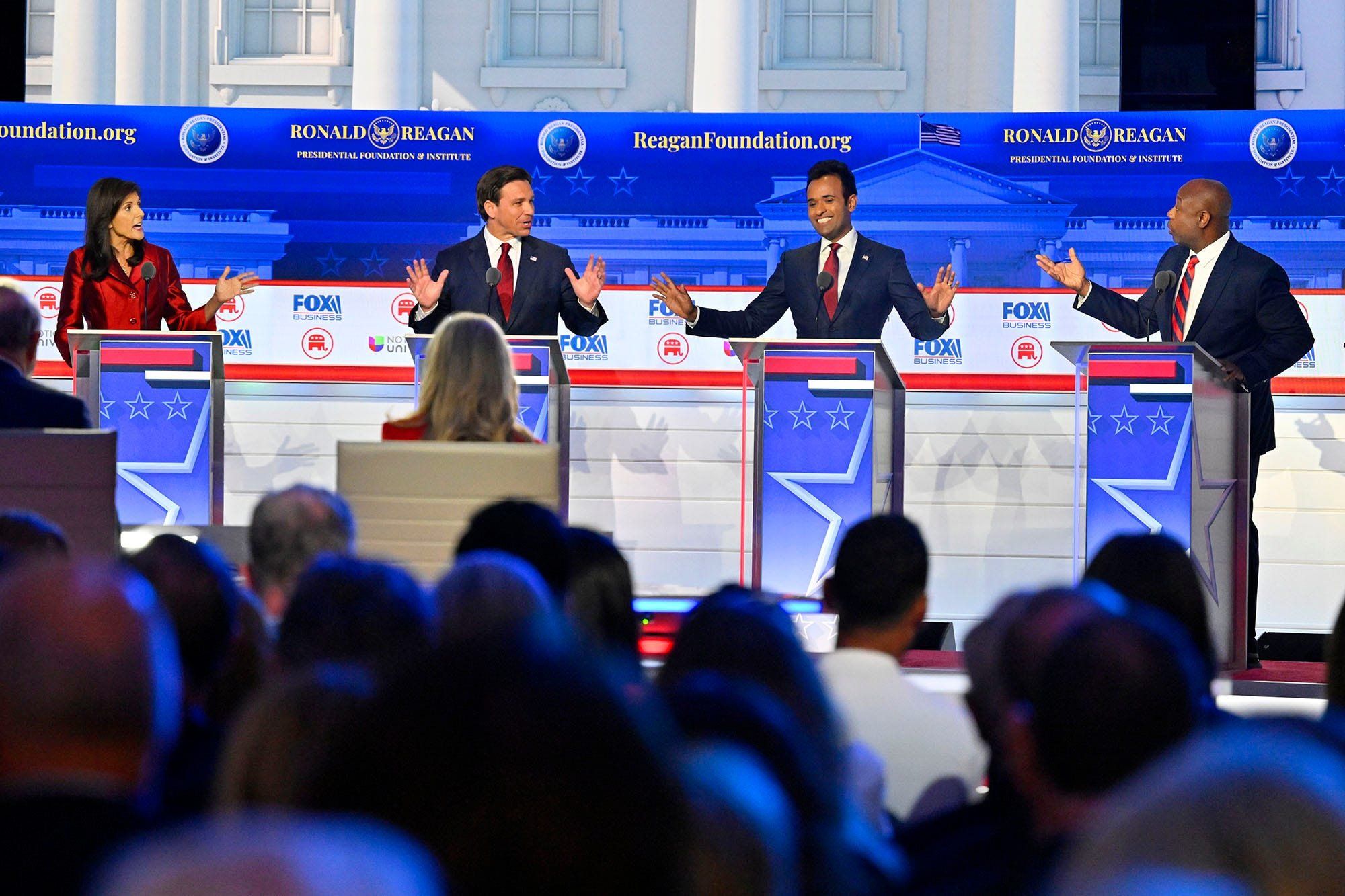Sound and fury, signifying nothing — the second GOP debate without Trump
“Every time I hear you, I think I get a little bit dumber.”
That was former UN Ambassador Nikki Haley’s big hit on Vivek Ramaswamy at last night’s GOP debate in the midst of just one of many chaotic verbal scrums. She was attacking Ramaswamy’s Ukraine-skeptic position, a subject that divided the stage sharply. But Florida Gov. Ron DeSantis used his promise to tighten up the purse strings around Ukraine aid to pivot to a subject the candidates were much keener on: border security.
DeSantis said America was being invaded by migrants and promised he would militarize the border and defend national sovereignty. North Dakota Gov. Doug Burgum said he’d already put his money where his mouth was and deployed his state’s national guard to the border. Sen. Tim Scott (R-SC) said he would address the flow of fentanyl into the US by freezing the financial assets of drug cartels. Haley went a step further and said she would straight up conduct military special operations targeting cartels in Mexico. But Ramaswamy took by far the most radical position, saying he would end birthright citizenship in the United States, which is enshrined in the 14th amendment of the Constitution.
In fact, the border and accompanying issues of drugs and migration seemed to be what the candidates turned to most readily when asked about one of those pesky subjects they’d rather not touch. You know, like healthcare, gun violence, or how any of them think they have a snowball’s chance in hell of beating Donald Trump.
Not a single question was asked about the former president being found liable for fraud this week, or about any of his many legal imbroglios for that matter. Former New Jersey Gov. Chris Christie took the strongest shots at Trump, looking into the camera to address him directly at one point and later mocking him for “ducking” the debate. (I won’t subject you to his Donald Duck quip).
Trump, for his part, spent the evening addressing autoworkers at a factory in Michigan, after President Joe Biden joined a United Auto Workers picket line there on Tuesday. Trump swore not to allow “the American auto industry to die” and promised if the workers could “get your union leaders to endorse me, I’ll take care of the rest.”
There was just one problem: The workers he was speaking to don’t have union leaders, because they don’t work in a union shop. At the height of the largest auto industry labor action in recent memory, Trump was talking to at-will workers. It’s the kind of Veep-esque gaffe that might negatively impact any other candidate’s primary campaign, but with Trump polling a cool 40 percentage points ahead of his closest rival … he has little reason to worry.
